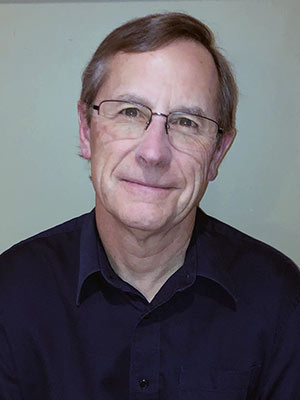
USask launches first practicing anthropology master’s program in Canada
Graduates will be trained for careers as anthropologists in the private and public sectors
By Chris PutnamA search for career opportunities at Google will turn up dozens of recent job postings with an unexpected qualification: a graduate degree in anthropology.
Google, along with many of the world’s top employers, is looking for anthropologists. The University of Saskatchewan (USask) will help meet the demand by launching Canada’s first Master of Arts program in practicing anthropology in 2023.
“If you want to be a social scientist in the private sector, this is the program for you. If you want to be an anthropologist but you don't want to get a PhD, this is the program for you,” said Dr. James Waldram (PhD), USask distinguished professor and anthropology graduate program coordinator.
The College of Arts and Science’s Department of Archaeology and Anthropology worked closely with practicing anthropologists to create the new program, which will give students the knowledge and skills to work in businesses, social service agencies, non-governmental organizations (NGOs), Indigenous and community-based research organizations, and other sectors outside of academia.
Anthropologists have often found employment in governments and non-profits, but demand for their skills has recently surged at companies such as Apple, Google, Microsoft and General Motors.
Helping drive the trend is a growing movement toward design anthropology and UX (user experience) research.

“What we (anthropologists) bring, which is unique to our discipline, is the understanding of human behaviour in a real-world context,” said Waldram.
Anthropologists can gather insights about how people use and interact with a company’s products in their daily lives. This knowledge helps companies design products that better meet their customers’ needs.
Cross-cultural communication is another asset that practicing anthropologists bring to business. International companies need to understand the local cultures of people around the world in order to appeal to regional preferences and avoid embarrassing miscommunications.
“Ethnographic approaches and anthropological approaches are big in business education precisely for that reason,” said Waldram.
The USask MA in practicing anthropology will prepare graduates to carry out this research in the private sector, or to work in more traditional roles in NGOs and intergovernmental organizations: everything from local non-profits to the United Nations.
“We want to train students to work at some of the highest, most complex organizations in the world,” Waldram said.
The program will take a hands-on approach to training. Instead of a thesis, students will complete a project on behalf of a real-world client.
“The project is client-driven. We want to respond to the needs of the communities and organizations that we work with and produce work that will be of value to them,” said Waldram.
An advisory council of practicing anthropologists will help guide students in the program and connect them with employment opportunities.
USask will continue to offer its thesis-based Master of Arts in Anthropology Program. The existing program, which focuses on medical or environmental anthropology, is an ideal option for students who want to continue on to a PhD program.
The first intake of students to the new practicing anthropology MA program is September 2023. The deadline to apply is Jan. 15, 2023.

